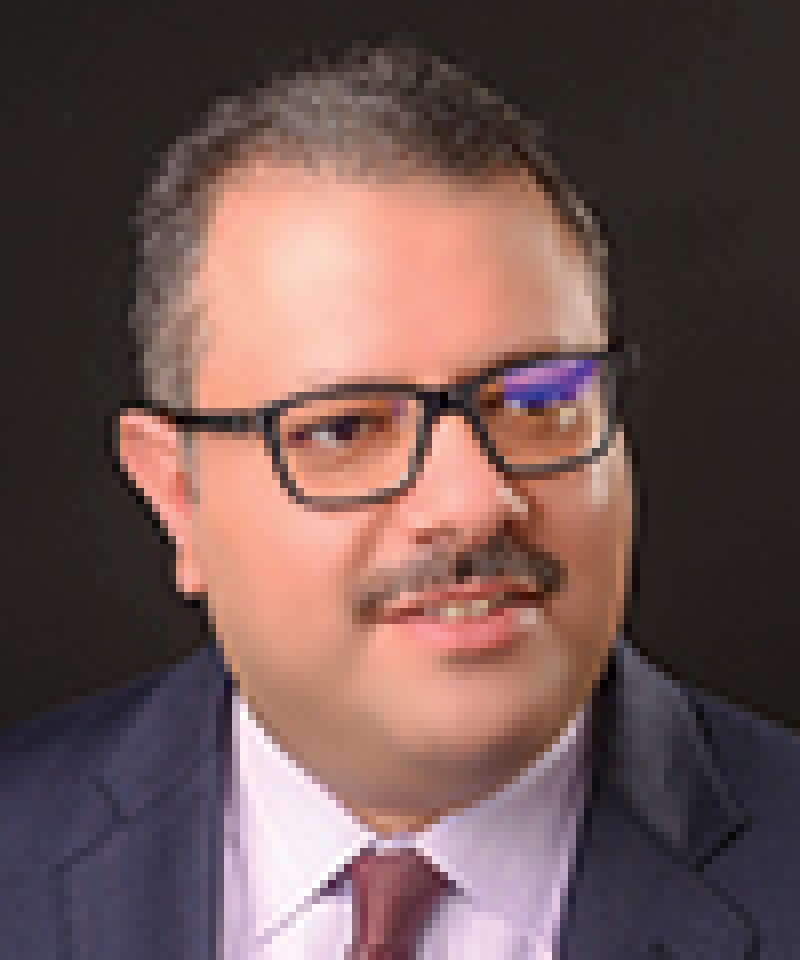The Republic of Sudan is moving forward to attract the attention of national and foreign investors. On December 14 2020, Sudan was officially removed from the US’s ‘State Sponsors of Terrorism’ list. This was further followed by an announcement from the President of France, Emanuel Macron, of the cancellation of $5 billion from Sudan’s debt on May 17 2021.
In light of the improvement of the Sudanese national economy, Sudan has published several new legislations to set out a more flexible and effective legal framework. This includes, among others, the new Investment Encouragement Act, 2021 issued on April 11 2021 (the New Investment Act) cancelling the previous Investment Act, 2013 (the Old Investment Act), the Public Private Partnership Act, 2021, and the new Banking Act, 2021.
The New Investment Act introduces new provisions, establishes additional investment authorities, and adopts advanced concepts as explained below. The New Investment Act maintains the following types of projects, which were regulated under the Old Investment Act, while providing further clarification in relation to the definition of each of them:
State project: any investment project established in Sudan in accordance with the requirements set forth by the newly established Investment and Private Sector Development Authority (Authority) in which the conditions of the national project do not apply;
Investment project: any economic activity licensed by virtue of the New Investment Act;
National project: any cross-border investment project between different Sudanese states which is based on the investment, exploitation of the natural resources, or underground national resources, or participated in by the state, which affects the domestic communities, or controls strategic products and services of the state including, foreign investment; and
Strategic project: a project established by virtue of an agreement with the government of Sudan.
The New Investment Act aims to prepare the investment environment to attract investments in line with the targets and priorities of Sudan, as well as increasing the economic growth rate, creating job opportunities, and exploiting natural and human resources.
In light of these purposes, investments projects shall follow the general principles provided under Article 5 of the New Investment Act. Among others, this includes meeting the needs of the local and regional market, supporting and developing entrepreneurship, creativity, as well as emerging, small, and medium companies, in addition to protecting the environment and public health, and encouraging scientific research and using modern technology in different production sectors.
New investment authorities
The Authority
The New Investment Act establishes the Authority for Investment, Development of Private Sector and Units subject to the Supervision thereof (the Authority) which enjoys most of the competences previously vested in the High Authority established under the Old Investment Act. The Authority shall be constituted by virtue of a Prime Minister decree and headed by the Minster of Investment, and shall supervise the following units:
The investment encouragement and progressing investor services unit;
The public and private sectors partnership unit:
The market and free zones unit: and
The leading small and medium companies (Article 6).
The Authority is the supreme authority in charge of investments-related matters. Its powers, which are listed under the New Investment Act, include, without limitation:
Approving the general policies, strategies, plans, and programs required to achieve investment purposes and following up on the execution thereof;
Revising laws related to investment; and
Cooperating with the investment-related authorities (Article 7).
The Operation Rooms
The New Investment Act provides that the Minister of Investment shall establish:
The ‘Investment Lands Operation Room’ for the purposes of cooperating with the relevant Sudanese state to determine the lands designated for investment; and
The ‘State Investments Operation Room’ to cooperate between the Ministry of Investment and foreign cooperation (Ministry of Investment) and the Sudanese states to achieve the purpose of national investment (Articles 13 and 14).
The Insurance Guarantee Company
The New Investment Act provides for the incorporation of a company to guarantee insurance of national and foreign investment (the Insurance Guarantee Company) in accordance with the Companies Act of 2015. The purpose of the Insurance Guarantee Company shall include insurance against:
The risk of currency conversion;
The risk of confiscation and nationalisation:
The risk of war, social dispute, and civil rebellion;
The risk of terminating a contract in violation of the law; and
Non-commercial risks pursuant to the relevant international conventions (Article 27.1).
The insurance of a project may be undertaken by the investor in consideration for annual instalments fixed under the company’s articles of association. The Ministry of Investment may participate in the insurance through instalments fixed pursuant to its discretionary power, such participation is made by the means of a set-off through deduction from the obligations of the project toward the state of Sudan (Article 27).
The Insurance Guarantee Company has the right to proceed with reinsurance activities with international Arabic institutions, in which Sudan is a party (Article 27.3).
Investment incentives and social liability
Investment incentives and privileges
All investments in Sudan enjoy fair and equitable treatment. Investment projects that ascertain economic interests benefit from, among others, the following privileges.
Privileges
Foreign investors enjoy accommodation in Sudan for the duration of the project. Further, no fees shall apply on projects except by virtue of an approval of the Ministry of Investment. Accordingly, the Ministry of Investment shall fix the fees thus promoting competition between investments in Sudan.
Customs and taxes exemptions
The New Investment Act provides for an exemption from the following customs duties: (i) the fee applicable to the capital required for the setup and preparations of a project; and (ii) on specific transportation as determined by the regulations.
Furthermore, an investment project is exempt from business profit tax for a period not exceeding five years from the commercial production date in accordance with the regulations. It is expected that the exemption period will be fixed on a case-by-case basis within the limit of five years from the commercial production date. The investment project is also exempt from value added tax (VAT) in accordance with the list approved by the Ministry of Investment.
Allocating the land
The Investment Lands Operation Room shall prepare the project land in cooperation with the Sudanese states, and fix the general and specific requirements of each project with regard to allocating the project land. The duration of contracts over investment lands is three years subject to renewal with the license as determined by the regulations.
Preferential incentives
The Authority may grant additional privileges for projects in accordance with the regulations. Such privileges are subject to the fulfilment of the determined timeline for project execution.
Social liability
The New Investment Act innovates the concept of social liability. An investor may allocate a percentage of the annual dividends of a project to participate in social development, which amounts will be deducted from the investor’s tax base. The type and scale of social liability is determined upon the issuance of the license (Article 28).
Given the voluntary language of the New Investment Act regarding the allocation of a percentage of the annual dividends to participate in the social liability, it is presumed that the determination of the social liability type and scale under the license will occur following the approval of the investor to participate thereto.
The New Investment Act lists the domains in which an investor may participate including:
Protection of the environment;
Healthcare, social, cultural, or any other development services
Training and scientific research; and
Any other field as agreed with the competent authorities.
The Minister of Investment may, in cooperation with the relevant ministries, issue a list of the best projects which undertake social development activities.
Licensing regime
Granting the license
The New Investment Act allows any person to undertake an investment project upon obtaining the required licenses. In the case of national projects, negotiations shall be held with the relevant state. The license duration is three years subject to renewal following the fulfilment of the required information in accordance with the regulations relating to the New Investment Act, noting that such regulations have not yet been issued. Failure to execute the investment project within the duration of the license would result in cancellation of the license (Article 23).
Investment-related ministries and regions (the competent bodies) have the right to issue a preliminary approval in respect of the establishment of a project on the basis of a technical, economic, and social feasibility study, as well as following up on the execution of the project and reporting periodically to the to the Ministry of Investment (Article 10).
The one-window system
The one-window system, which was created by the Old Investment Act in order to facilitate the services provided is maintained under the New Investment Act. The one window system covers all Sudanese states, in addition to including coordinators from the competent ministries and governmental units related to investment (the investment coordinators) (Article 9). The investment coordinators shall have the same powers of the entities they represent, and shall be competent to undertake a technical review of the licenses requests (Article 11.3).
Investment limitations
General limitations
The investor may not, except upon the approval of the Minister of Investment, undertake any of the following (Article 24):
To amend the project size, the purpose for which the license was granted, or changing the site of the project specified in the license as approved by the competent bodies;
To use or sell the equipment, machinery, material, or transportation means which enjoyed privileges for any a purpose other than that specified in the license;
To create a pledge over the project, equipment, machinery, or transportation means in order to acquire financing for the project;
To dissolve the partnership or transfer the ownership of the company;
To dispose of the land granted for the investment project whether by sale or pledge except after it is fully invested in accordance with the regulations. It is expected that the regulations to determine the criteria of ‘full invested’ project will be confirmed, as it is not specified under the New Investment Act (e.g. full construction of the project is completed, or the elapse of the license duration etc.); and
To divide an investment project by any means.
Limitations on foreign investments
The New Investment Act provides that the Authority shall, on the basis of the recommendation of the Minister of Investment, issue a list including certain sectors and economic activities which are not subject to foreign investment. Given the novelty of the New Investment Act, such a list has not yet been issued.
It is worth noting that the New Investment Act refers to the unissued regulations with regard to fixing minimum capital requirements for foreign investors (Article 22.1). The Authority is competent to issue regulations required to enforce the provisions of the New Investment Act, which regulations have not yet been issued (Article 39.1).
Prior to obtaining the license, a foreign investor must pay an amount not less than $250,000 or its equivalent of the foreign currencies admissible by the Central Bank of Sudan as evidence of commitment in accordance with the regulations. It is expected that the regulations will specify the relevant authority to which the investor is entitled to pay such amount, given that it is not determined under the New Investment Act. Such an amount will be used to finance the relevant project after obtaining the license (Article 22.2).
Dispute resolution
Dispute resolution mechanism
The New Investment Act maintains:
The dispute resolution mechanism provided under the Old Investment Act, whereby any dispute in relation to an investment shall be settled by the competent court unless the
parties agree to arbitration or conciliation, to the extent the dispute does not fall under the umbrella of the conventions stated under Article 34.2 of the New Investment Act (e.g. the Investment Disputes Settlements Raised Between the Arab States Convention of 1974); and
The principle for the establishment of competent courts by the head of the judiciary, and competent public prosecutions by the public prosecutor for the violations in relation to investments, as already provided under the Old Investment Act (Article 33 and 34).
The New Investment Act creates a plaint mechanism which was not tackled under the Old Investment Act. A ‘plaint committee’ shall be established by the Authority to examine the complaints regarding the decisions issued by virtue of the New Investment Act. The plaint committee shall issue its decision in relation to the complaint within a period not exceeding three weeks from the date of receiving the complaint (Article 38).
Violations and penalties
The Minister of Investment has the right to impose the following penalties (to be registered under the ‘investment register’ of the investment project) in case of violation of the provisions of Article 23 or 24 of the New Investment Act in relation to granting licenses and the general limitations on investment elaborated above (Article 37):
Serving written notice requesting the cure of the violation within the period specified in the notice;
Total or partial deprivation of the privileges and exemptions granted to the violator in accordance with the regulations;
Suspension of works until the violation is cured;
Cancellation of the license in case of violation of the provisions of the New Investment Act, the regulations issued pursuant thereto, or the licensing conditions; and the
Cancellation of the license in case of suspension of the activities or business performance of the investment project for a period exceeding one year without notifying the Authority, or delay for a period exceeding one year from the date of the operation under the timeline submitted by the investor when requesting the license without an acceptable excuse.
Click here to read all the chapters from IFLR's Africa Market Makers 2021

Mahmoud Bassiouny
Regional managing partner
Matouk Bassiouny
T: +202 2796 2042 (ext 103)
E: mahmoud.bassiouny@matoukbassiouny.com
Mahmoud Bassiouny is the regional managing partner of Matouk Bassiouny, and heads the firm’s finance and projects practice group from the Cairo office. His experience in trade and project finance, and in the energy and infrastructure sectors, has earned him the trust of international commercial banks, export credit agencies and major players in the energy industry.
Mahmoud advises major energy and oil and gas players, public and private parties, lenders and consultancy firms on various issues related to their business. He also has extensive experience in matters of security creation and perfection. His sector expertise includes energy, aviation, real estate development, heavy industries, and power and infrastructure.
Mahmoud is a graduate of Cairo University and Paris 1 Panthéon-Sorbonne University. He is a regular speaker at conferences and workshops on subjects of his expertise.

Yassir Ali
Partner
Matouk Bassiouny
T: +249 183 483 344
E: yassir.moniem@matoukbassiouny.com
Yassir Ali is a partner at Matouk Bassiouny’s office in Sudan and heads the office’s corporate and M&A group. He works frequently with corporate entities, banks and financial institutions. He has considerable expertise in setting-up joint ventures and new projects in Sudan, as well as ensuring compliance with local laws and corporate governance.
Yassir advises various local and international clients on transaction documents, deal negotiations and due diligence in the context of M&A involving public and private companies. He also has extensive experience in intellectual property as a registered patent and trademark attorney, in addition to the promotion and liquidation of all types of companies, and legal matters related to investments in Sudan.
Yassir is a graduate of Cairo University and has a post-graduate diploma from the University of Khartoum.

Nadia Abdallah
Senior associate
Matouk Bassiouny
T: +202 2796 2042 (ext 216)
E: nadia.abdallah@matoukbassiouny.com
Nadia Abdallah is a senior associate with Matouk Bassiouny’s finance and projects practice group in Cairo. She has worked on several due diligences, specifically in the energy and power sectors, as well as general corporate and commercial matters.
Nadia has worked on multiple matters in connection with companies’ law relating to the establishment of corporate entities, giving advice on daily matters, organising and drafting the minutes of meetings and drafting various contracts depending on the needs of the client, in addition to project finance and banking.
Nadia is a graduate of Cairo University.

Amgad Nagy
Associate
Matouk Bassiouny & Hennawy
T: +202 2796 2042
E: amgad.nagy@matoukbassiouny.com
Amgad Nagy is an associate in Matouk Bassiouny & Hennawy’s finance and projects group.
Amgad’s areas of expertise covers both Egypt and Sudan, it includes oil and gas as well as renewable energy fields through drafting, reviewing, and negotiating power purchase agreements, and other related project documents. He is also well versed in the drafting and negotiation of facility agreements, finance documents, authorisations reports, and term sheets, among other related tasks.






